One Made the Ultimate Sacrifice for his Country
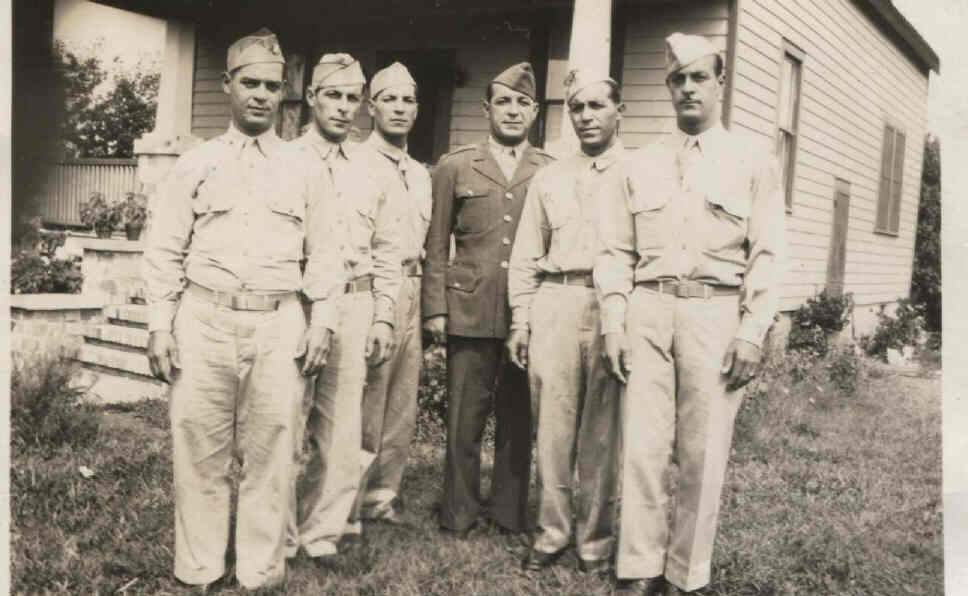
While the local newspapers followed their journey during the war years, today the Mancini brothers appear to have been forgotten. There is not a single reference to them on the Internet or in any local history publication.
They have an inspiring story that goes beyond their service in World War II.
Anthony, Steve, John, Sal, Louie, and James, in front of
their home on Leghorn Ave. in Bradley Gardens
click to see other photos taken in front of their home
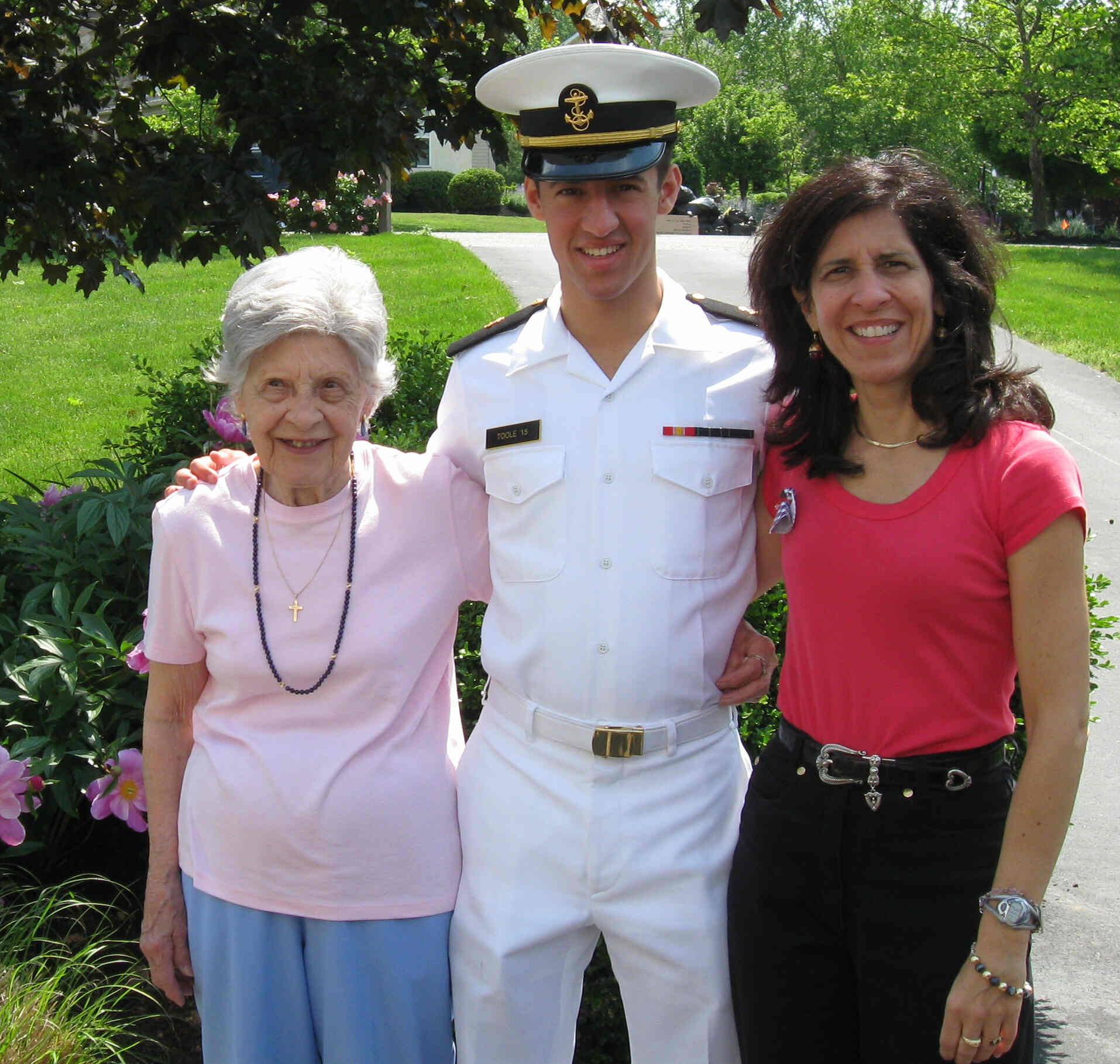
They would have 9 children in a 12 year period. Their first child, Steve, was born in 1909. Next came Sal, Fred, Louie, Tony, John, and James.
Their only daughter, Fran, was born in 1919. The last child, Joseph, was born in 1921. Today, all the Mancini boys have passed on, but their sister Fran, now 93, is still alive. She graciously met with The Breeze to tell their brother’s story.
Her grandson Joseph continues the family tradition as he is
enrolled at U.S. Naval Academy (located in Annapolis)
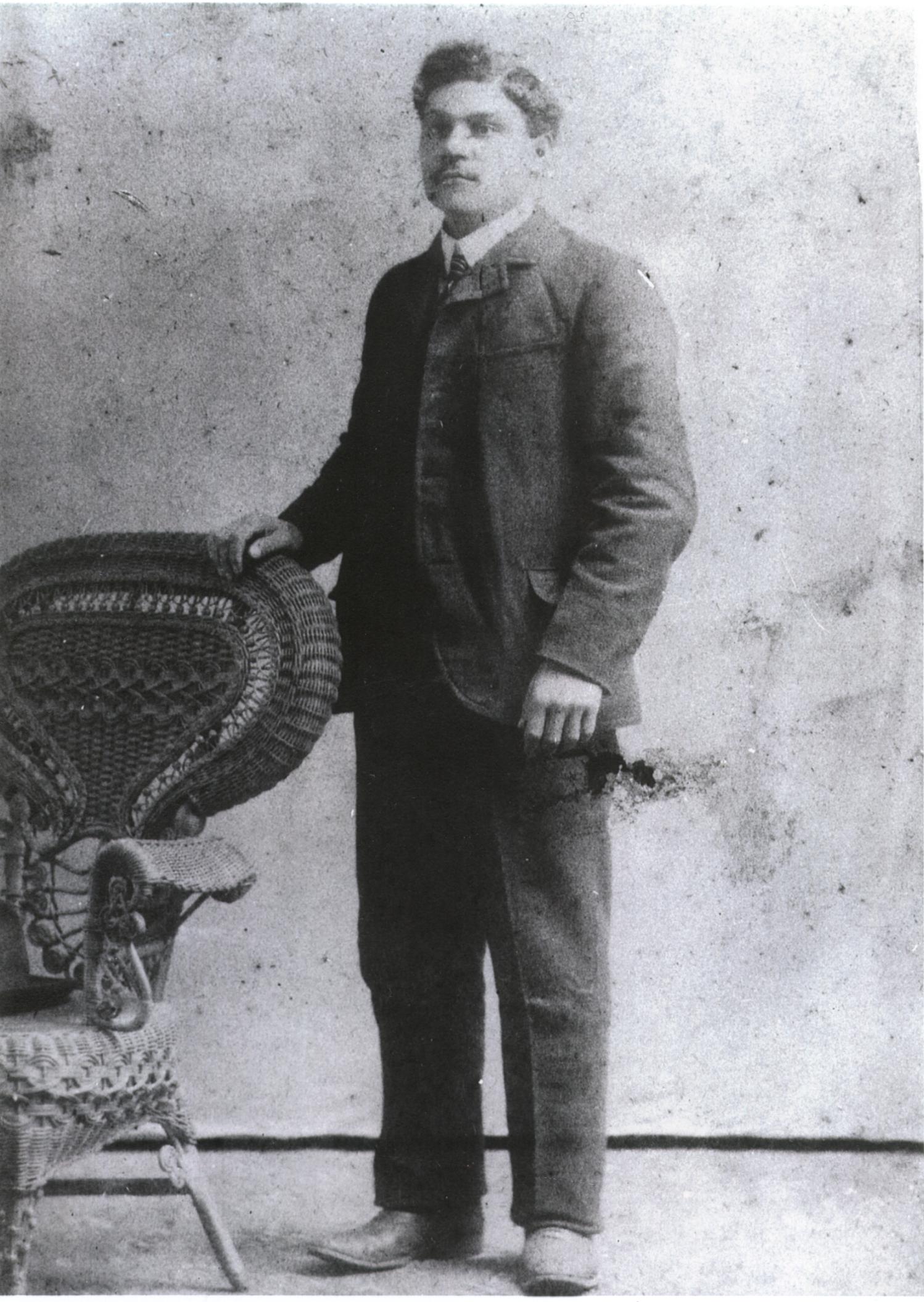
Feeding and housing a family of nine children is a challenge for any family, but the challenge for the Mancini family would be enormous as tragedy struck when the oldest boys were teenagers. Their dad Patsy was hit by lightning and rendered an invalid both mentally and physically. Patsy never recovered from the tragedy and spent the rest of his life in an institution.
The boys all went to work to keep the family together and support their mother and sister. Fran recalls that the boys worked as many jobs as possible to literally “put food on the table”. A proud family of their era, the Mancinis were not looking for handouts.
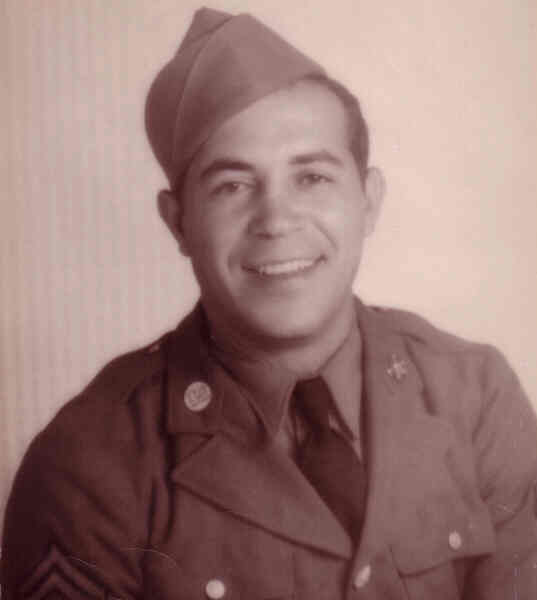
And Louie was not kidding about selling apples – he and his brothers did sell apples and other fruit. Sometimes the selling was door to door and sometimes in the street. They learned to be good salesmen - in the course of selling they dressed and acted professional. Family lore has it that these young gentlemen in their sales work always received compliments from the ladies for their manner and dress. They also made all kinds of conversation with any prospective clients. Another way they helped “put food on the table” was to chop wood to sell as firewood.
to help put food on the table
click to see photos of Louie during WW2

Some of the cheaper lots would go for just $300 back then. After the property was purchased, the house had to be built. No contractor was hired; the Mancini boys built the home themselves. (The home still stands – today the address is “181”, but back then it was “7”)
It was not a large home by today’s standards especially for a mom and 9 children. Fran shared a bedroom with her mom and the boys divided into the two other bedrooms. They never felt cramped as large close knit families in small houses was the way it was in 1930s America.
The addrees today is "181". During WW2 it was "6".
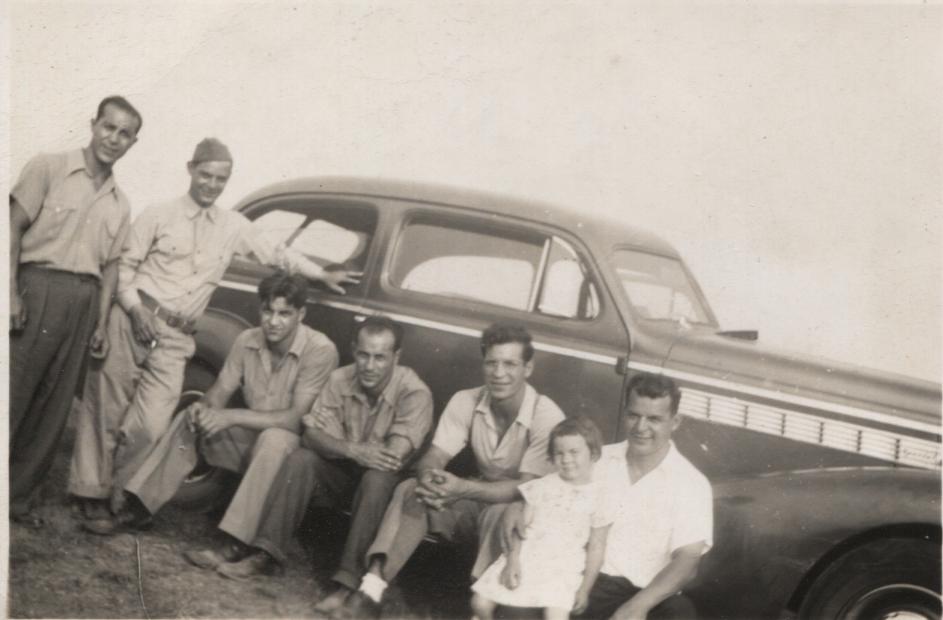
The chickens were often “processed” for dinner right in the backyard on Leghorn Avenue. Fran saw firsthand where the expression “running around like a chicken with your head cut off” came from. The family livestock did not just feed the family, but helped raise extra cash. At Thanksgiving time, neighbors from all around came to buy their turkeys from the Mancini family. Their chopping of wood to sell as firewood also was done here.
After a few years in Bradley Gardens the house would get less crowded as one brother, Fred, would marry the woman across the street and move in with her. In 1941, Fran married Joseph Soriano from Raritan and moved there.
Pauline is Fred's step-daughter

When World War II began, three Mancini brothers - Sal, James, and Anthony - went into in Army. Then a draft call in 1942 selected John, Louie, and Steve. The draft selection process may have seemed a bit unfair to some as in that round of the draft, only 3 guys from Bradley Gardens were drafted – and all 3 were Mancinis. The Mancinis already had 3 in the service and draftee Steve was 33 years old. But they went to serve their country without complaining. Having three more brothers leave was tough on Fran. She still remembers it like it was yesterday when all three said their goodbyes at the same time to her and her mom.
With six brothers in the service – the most from the Bridgewater / Raritan area - the local papers took notice and ran articles about their travels. Fran felt that it was good that they were recognized, but they sometimes were referred to as “The Fighting Mancinis”. She did not like this description. There was enough anxiety worrying about her brothers; she did not need to be reminded that they were “fighting”.
With so many brothers in the service, Fran did a lot of writing. She wrote often to each brother and sometimes acted as a communication center as she shared any information that she heard from one brother with the other brothers in her letters.
Sadly, in November of 1943, their mom, Maria Mancini, passed. The brothers would be notified of their mom’s death by letter while they were serving in the military.
The Somerset Messenger Gazette
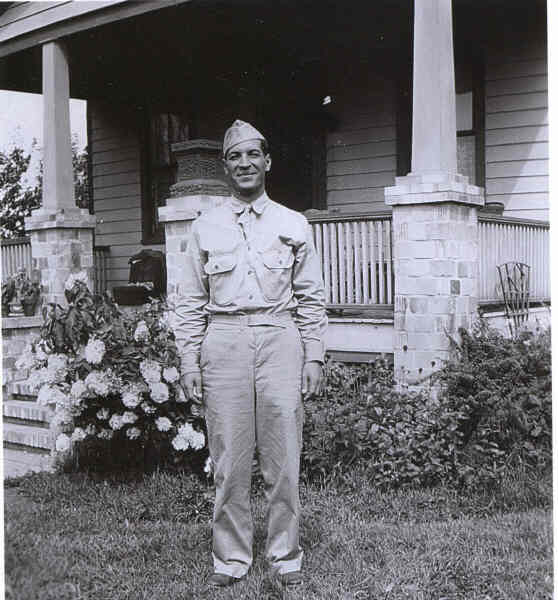
John Mancini wrote about the reality of war and what it does to you:
“I am somewhere in the front lines … Our law is like the animal of the jungle – kill or be killed. It becomes a soldier’s first nature after a while. He is even fiercer when he sees and learns that many of his buddies have fallen by the wayside.”
It is often said that there are no atheists in the foxholes. John quotes echoes that sentiment:
“Just one skirmish turns a man’s heart and soul to religion. If he never had religion, he has God in him after his first battle experience.”
One of John’s letters addressed some of the criticisms that the soldiers were facing. He said:
“A thing that has the doughboy puzzled here is the public demand to save houses of worship, beautiful and historical paintings and buildings. My opinion and that of many more soldiers is that it would be swell to save those buildings, but if the enemy uses those places as outposts then it is time to destroy them … Let those that wish to save these buildings come and fight this war themselves. Let them come and see what it is to stay in a foxhole for three days in water, cold, and rain. He will soon change his mind. … A doughboys life is worth more than all the buildings in creation.”
click to see photos of John
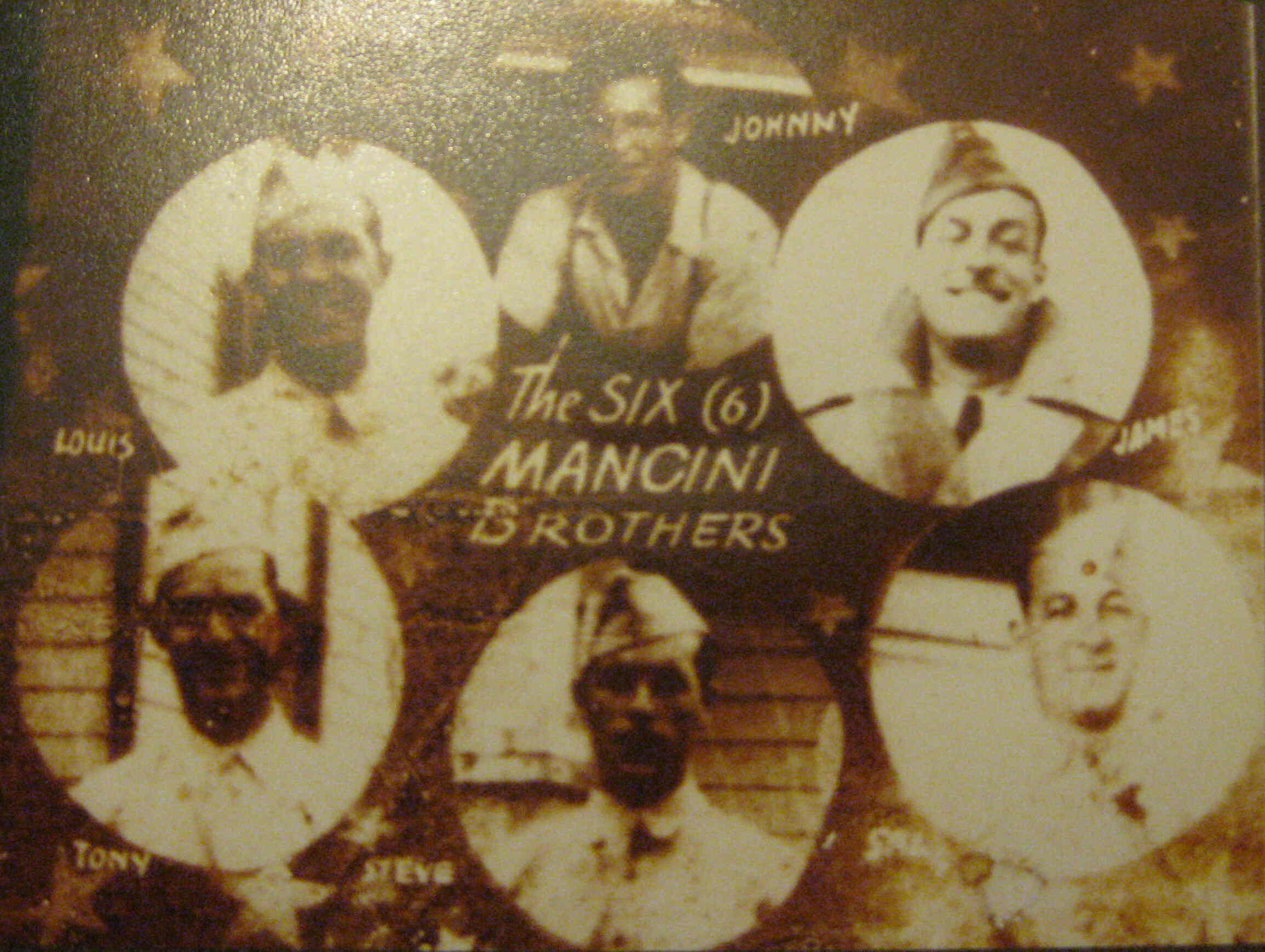
He surprising wrote how he was “having a good time” - stating how he “visited” battlefronts. Places like Bizerte, Tunis, Oran and Sicily. He wrote “Hope everyone at home is as happy as I am.” The history books today tell a much different story of what was going on in those places in 1943 – it was anything but a good time. In that letter Louie obviously did not want the family to worry.
But in a later letter he wrote about some of the suffering that he saw the people of Italy experience as result of the Nazi occupation. He was paraphrased in the RVN, it read:
“His most recent letter tells of the hunger Sicilians have been experiencing under Fascist rule. American Soldiers have given away their rations in many places. Louie Mancini reports, adding that he himself gave all his field rations to a group of nuns and in return received their blessing."
During WW2 they put this graphic on the
movie screen at the local theatre to honor them

John Mancini who fought with the 88th Blue Devil Division was wounded in Cassino, Italy. An enemy mortal shell that exploded near him caused him to be thrown over a barbed wire fence. He avoided cuts from shrapnel, but he injured his back and wound up in the hospital. He would recover and return to his unit and rejoin the fight.
Anthony Mancini saw combat action throughout Italy with the famed 45th (Thunderbird) Division. He was injured, but not by an enemy weapon, but in a truck accident. As was so common in World War II soldiers would be killed or injured just moving from place to place as they were moving heavy and dangerous equipment over makeshift roads under the threat of enemy attack. Anthony’s arm was broken in four places and he had to undergo an operation. That ended his fighting days and he was sent home to an Army hospital.
Sal Mancini saw plenty of fighting with the 4th Armored Division. He too was injured in a truck accident while serving with General Patton’s Third Army at the time. Sal was fortunate enough to meet up with his brother Steve overseas on two separate occasions.
Steve Mancini landed in France in August of 1944. He fought with his unit as they moved across Europe into Germany.
Louie Mancini fought in North Africa and Italy. He was in charge of the anti-aircraft gun that shot down his battalion’s first Nazi plane in the fighting at Sicily. He was later stationed in Corsica which an island in the Mediterranean that the U.S. used as an airfield.
about The Mancinis. Click to view

The youngest and last to join - Joseph - was killed in action when his ship The USS Intrepid was hit by two kamikaze planes on November 25th, 1944.
It was early in December that Fran and her brother Fred both received a telegram telling them that Joe Mancini was missing in action. The telegram read:
The Navy department deeply regrets to inform you that your brother Joseph Mancini Fireman First Class USNR is missing following action while in the service of his country. …. details are not now available ….. To prevent possible aid to our enemies please do not divulge the name of his ship or station.
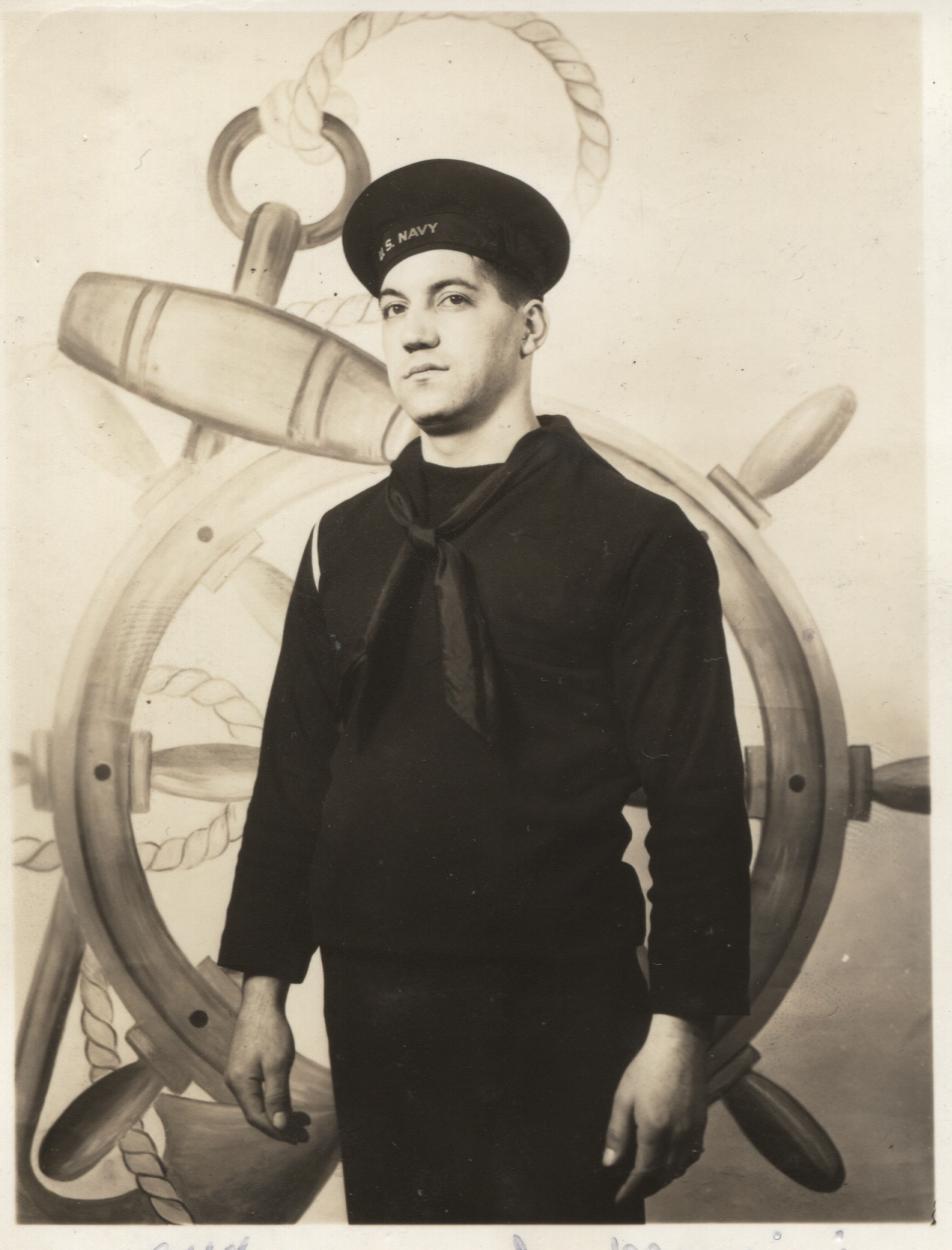
After Joe’s death, his sister Fran had a dilemma. Joe had sent home money for Fran to buy and deliver his girlfriend a Christmas present. However, Fran thought - would giving Joe’s girlfriend this present just cause additional needless sorrow. But she decided that since it was Joe’s wishes to get his girlfriend a gift, so she would do so.
She took the gift to the girlfriend’s home, but finding words to say in such a sad situation was very difficult, so few words were spoken. Fran simply gave the girlfriend the gift stating here is Christmas present that Joe had brought for you.
serving on The USS Intrepid.
two Kamikazes hit the ship on Nov. 25th 1944.
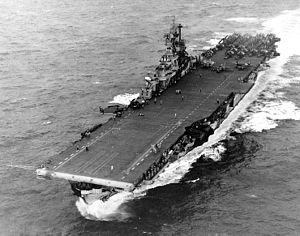
The Navy Department deeply regrets to inform you that a careful review of all the facts relating to the disappearance of your brother Joseph Mancini, Fireman 1/C previously reported missing, leads to the conclusion that there is no hope for his survival, and that he lost his life as a result of enemy action on November 25th, 1944 while in the service of his country. Sincere sympathy is extended to you in your great sorrow.
Joe Mancini had a very eventful tour of duty in his six months on The USS Intrepid. His full story will be told in the November edition of The Breeze. As for the ship he served on - The USS Intrepid – it has been converted to a (very popular) museum that is located on the docks of Manhattan.
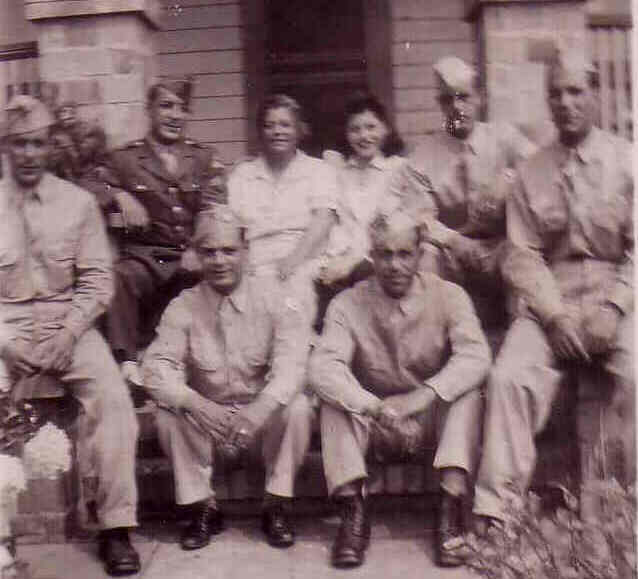
Steve Mancini , the oldest, would stay in the area. He became a carpenter working for various firms in Somerville. He died in 1981.
Sal Mancini would work on the loading docks of his old hometown in Bayonne. He died in 1979.
Fred Mancini, the one brother who did not serve in the war (he stayed home to care for mom and his own four kids) would work at Johns Manville and Calco. He would start 2 fire companies in Bridgewater. He died in 1986.
Louie Mancini along with his wife would own and operate various dress factories. The last one was on Anderson Street in Raritan – that one was open from 1957 thru 1972. He died in 1994.
Anthony Mancini would go on to work for The American Can Company. He died in 1997.
John Mancini would move to San Antonio, Texas to be with his wife. Early in the war while he was training in the army in Texas, he had met her and married her there. He became the Vice President of a bank in that area. He died in 1987.
James Mancini would use money from the GI bill to attend school to learn the trade of television repairman. He then opened his own business called Jim’s T.V. Repair. The office was in downtown Raritan.
Fran Mancini, now age 93, lives quietly in West Chester, Pennsylvania. Displayed on the wall in her home is the original telegram that informed her that her brother Joe had made the ultimate sacrifice for his country.
with her brothers